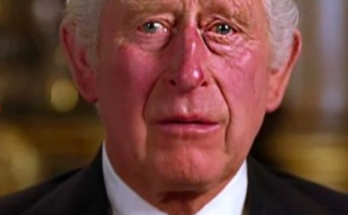uice WRLD, born Jarad Higgins on December 2, 1998, was a rising star in the music world whose life was tragically cut short. The rapper and singer, known for his emotive lyrics and genre-blending style, passed away on December 8, 2019, at the young age of 21. His death was a profound loss to the music community and his fans worldwide.
Juice WRLD’s meteoric rise in the music industry began with his breakthrough single “Lucid Dreams,” released in 2018. The track, which cleverly samples Sting’s “Shape of My Heart,” showcased his unique ability to blend melodic hooks with raw, introspective lyrics. The song’s success was a testament to Juice WRLD’s talent and the impact he had on the genre. His debut album, “Goodbye & Good Riddance,” was critically acclaimed and marked him as one of the most promising artists of his generation.
Despite his success, Juice WRLD struggled with personal challenges, including battles with substance abuse and mental health issues. His music often reflected these struggles, resonating deeply with a generation grappling with similar issues. His openness about his struggles with mental health and his candid lyrics provided a sense of solace to many of his listeners.
On the fateful night of December 8, 2019, Juice WRLD was on a private jet traveling from Los Angeles to Chicago. The flight was a routine one, but the events that unfolded would mark a tragic end to his life. Shortly after landing at Chicago’s Midway International Airport, Juice WRLD experienced a seizure at the airport and was subsequently taken to a nearby hospital. Despite the efforts of medical personnel, he was pronounced dead later that day.
The circumstances surrounding Juice WRLD’s death revealed a distressing aspect of his struggle with substance abuse. It was reported that, at the time of his death, he had ingested several pills, including opioids, which were believed to have contributed to his seizure. Juice WRLD’s passing underscored the perilous nature of substance abuse and highlighted the importance of addressing mental health and addiction issues openly and supportively.
Juice WRLD’s legacy is marked by his profound influence on modern music and his impact on his fans. His ability to articulate the pain and turmoil of his generation in his music has left a lasting impression. His songs, characterized by their emotional depth and vulnerability, continue to resonate with listeners, offering a glimpse into his complex inner world.
In the wake of his death, Juice WRLD’s family, friends, and fans have mourned his loss while celebrating his contributions to music. Posthumous releases, including the album “Legends Never Die,” have continued to showcase his artistry and keep his memory alive. His influence endures through his music, which remains a source of comfort and inspiration for many.
Juice WRLD’s passing serves as a poignant reminder of the struggles that many young people face, particularly in the realms of mental health and addiction. His story, though marked by tragedy, also reflects the broader challenges of contemporary life and the need for greater empathy and support for those grappling with similar issues.
In remembering Juice WRLD, it is essential to honor not just his musical achievements but also to acknowledge the broader conversation about mental health and substance abuse that his life and death have brought to the forefront. His music remains a testament to his talent and the enduring impact he had on his audience, and his legacy continues to influence and inspire. Rest in peace, Juice WRLD. Your voice and your music will never be forgotten.



